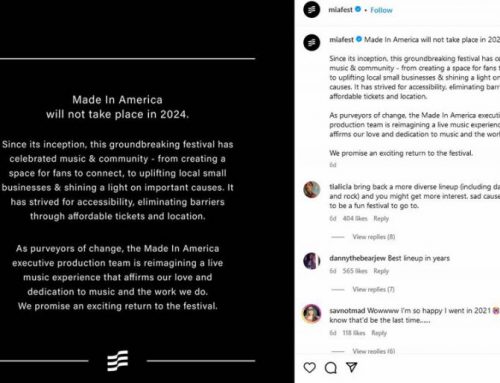Several years ago the it thing to do was to play a certain game online.
Everyone was playing it.
You also knew they were playing it because it led to some very strange situations in parking lots and on the sides of roads.
People still play it, but the frenzy is not there.
That game was the brainchild of multiple governments.
Not the characters, but the game.
The “company” behind it was given unlimited access to the accounts registered in the app. Every single person.
Every single piece of their information.
This was allowed for the first 60 days and then after that would be shut off because the breach would be “discovered.”
The GPS data was never turned off though and now these governments knew which people were where and when they were there.
It was so successful at tracking people that another government decided they wanted in on all this access and monitoring and later that same year launched a social media platform that is worldwide and tracks hundreds of millions of people daily, all over the world.
Pokemon GO
Company: Niantic
TikTok, China
Experts say Pokémon Go exposes players to security and privacy risks
Last week, Pokémon Go was officially released in the U.S. and players downloaded the application in droves. Overall, gamers are reporting a mostly positive experience, after a few server issues, but security experts warn that the app isn’t without its risks.
Last Friday, Adam Reeve, a Principal Architect at RedOwl, said that Pokémon Go was a huge security risk, and focused on the authentication aspects of the application.
In order to play the game, the user will need to have an account. There are two ways to authenticate, a Pokemon.com account or Google. Most players, due to a halt in new signups on Pokemon.com have opted to use their Google account.
Typically, when Google is used as the authentication method, the user is shown the level of permissions the application is going to need. But in the case of Pokémon Go, the authentication is nearly instant and the user is redirected to the login screen – with no permissions notice.
When Reeve went to confirm permissions online, he learned that Pokémon Go had full access to his Google account.
“Let me be clear – Pokemon Go and Niantic can now: Read all your email; Send email as you; Access all your Google drive documents (including deleting them); Look at your search history and your Maps navigation history; Access any private photos you may store in Google Photos, and a whole lot more,” Reeve explained.
“Now, I obviously don’t think Niantic are planning some global personal information heist. This is probably just the result of epic carelessness. But I don’t know anything about Niantic’s security policies. I don’t know how well they will guard this awesome new power they’ve granted themselves, and frankly I don’t trust them at all. I’ve revoked their access to my account, and deleted the app. I really wish I could play, it looks like great fun, but there’s no way it’s worth the risk.” – Source
Niantic ‘punished’ millions of Pokémon Go players for cheating
Pokémon Go creator Niantic won a $5 million settlement against Pokémon Go, Ingress, and Harry Potter Wizards Unite hack creators in 2020 — the culmination of a lawsuit that was filed in 2019. But it wasn’t only going after the cheat creators. Niantic announced Tuesday that it has issued “punishments” more than 5 million players across the three games since 2020.
More than 20% of those punishments, Niantic said, were “permanent bans.” Cheating in Pokémon Go, Ingress, and Harry Potter Wizards Unite largely means using hacked programs, like the ones named in the lawsuit, which allow players to access modified versions of the game that allow for GPS spoofing and “auto-walk” functionality. These allow players to play Pokémon Go, Ingress, and Harry Potter Wizards Unite without going outside or actually moving to a certain location. – Source
Read more on these Tags: China









